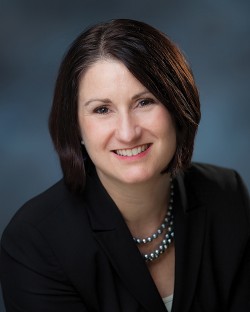The first time Melody Rose ever stepped onto a college campus was on move-in day at the University of California, Santa Cruz. As a first-generation college student from a poor family in Los Angeles, the odds were stacked against her.
Rising to the challenge
Just last week, Rose became vice chancellor for academic strategies for the Oregon University System, and will work on issues that impact all seven OUS campuses.
Among her many responsibilities, Rose, Portland State’s former vice provost of academic affairs, will serve as a senior policy adviser to the chancellor, develop student success initiatives and help shape the direction of higher education in Oregon.
Rose’s unique insights make her a great fit for the post, said George Pernsteiner, chancellor of OUS.
“She brings knowledge of Oregon that comes from deep interactions with communities and leaders in this state for many years,” Pernsteiner said. “She has a record of scholarship needed to establish credibility with faculty at all our universities.”
Rose has spent 17 years at PSU, rising from adjunct faculty member to chair of the political science department before serving as the university’s vice provost for academic affairs. As vice provost, Rose led a revision of the honors program curriculum, led an update on the institutional accreditation process and integrated the PSU Center for Academic Excellence.
During her time at PSU, she also founded the campus Center for Women, Politics and Policy. The center aims to train and inspire the next generation of women to increase their presence in public policy.
“She has had a significant impact on the understanding of the role of women—past and present—in public life, and moreover has taken an active role in the development of future women leaders. Melody is a nationally regarded scholar on this topic,” said Roy Koch, former provost and vice president for academic affairs.
Drawing on her own experience, Rose has a self-proclaimed passion for public education, and attributes her success to college; she attended at a time when the state of California was investing heavily in its public universities, making tuition for lower-income students affordable.
“I wouldn’t be vice chancellor today if I didn’t have that opportunity,” Rose said.
The new vice chancellor believes optimism and collaboration are key in tackling the big issues that higher education faces. Among these is affordability.
“Access to higher education is a cause near and dear to my heart,” said Rose. “I’m concerned about the enormous student debt out there. I am and will continue to be a vocal advocate for accessibility.”
Rose also stressed the value of educational attainment. She will be instrumental in seeing through Oregon’s 40/40/20 Plan, an education goal that aims, by 2025, for 40 percent of Oregon adults to have a bachelor’s degree or higher, 40 percent to hold an associate’s degree or vocational certificate and 20 percent to have a high school diploma.
“We face great opportunities as the education landscape changes in Oregon and in the country,”
Pernsteiner said. “[Rose] has the perspective, knowledge and judgment to help us take advantage of these opportunities so that we can make real progress toward meeting the state’s ambitious 40/40/20 education goals.”
Part of Rose’s vision is to ensure that vulnerable students don’t fall through the cracks. She wants to work toward more fluid transitions between high schools, community colleges and universities.
“We often lose students at those junctures,” Rose said. “Breaking down the borders between educational sectors is essential.”
Rose sees a seamless relationship between her work at PSU and her responsibilities with OUS. Her focus will continue to remain on the student experience.
As vice chancellor, Rose’s first step will be to build relationships with her constituents, who range from students to faculty to business leaders who seek out well-educated graduates to hire. Rose will extend her outreach by visiting the OUS campuses she is less familiar with.
“Overall, we need to find interesting, innovative ways to make the student experience richer,” Rose said. “With the advent of free online education, students today have enormous access to information, and we need to figure out how to acknowledge this knowledge and make sure we are delivering quality education.”
Tackling challenges that face the nation as a whole will also be a part of Rose’s work and advocacy.
Rose, who serves under a contract that is renewable in 2014, said of her new position: “There are so many things on the table. I’m excited and honored.”






